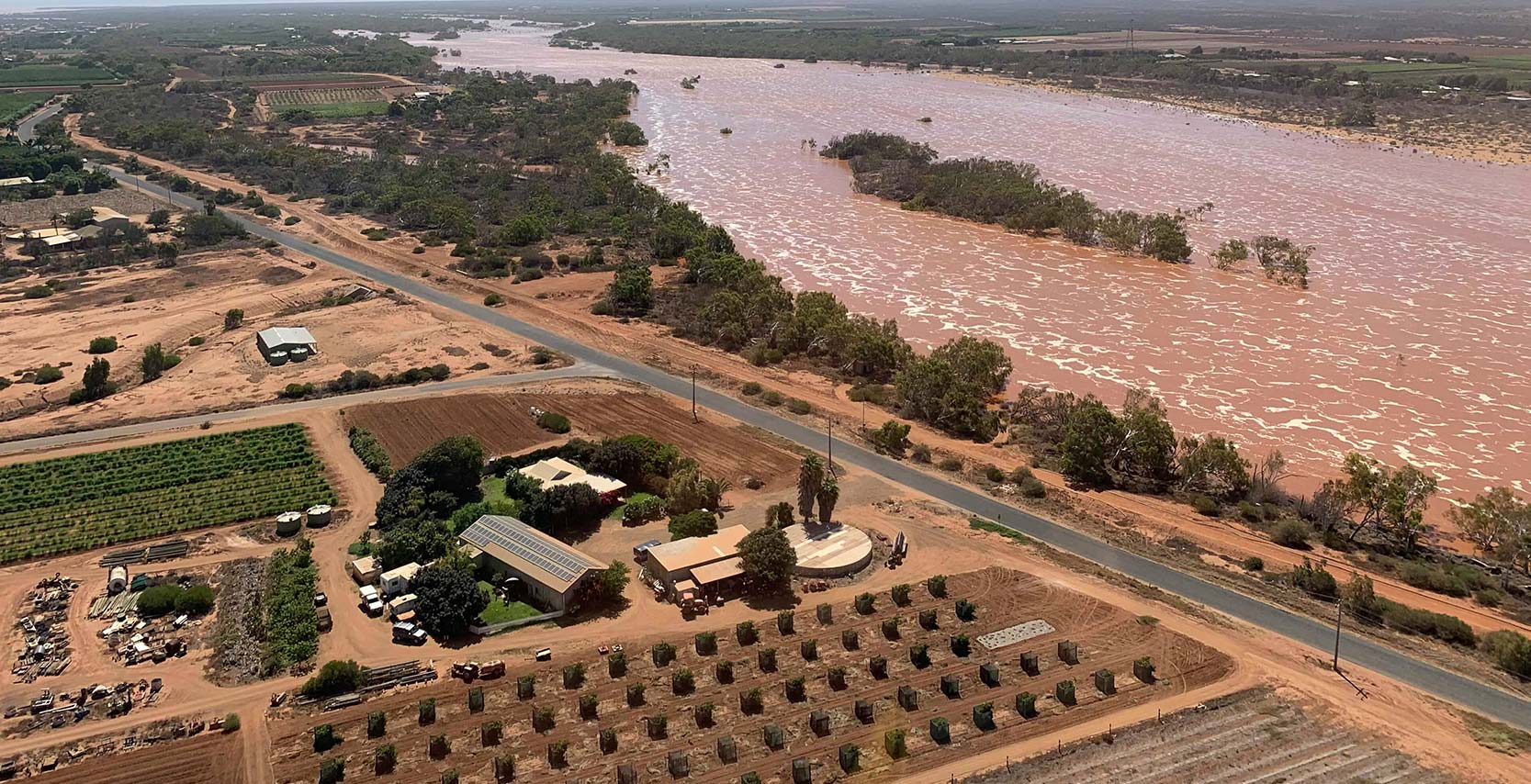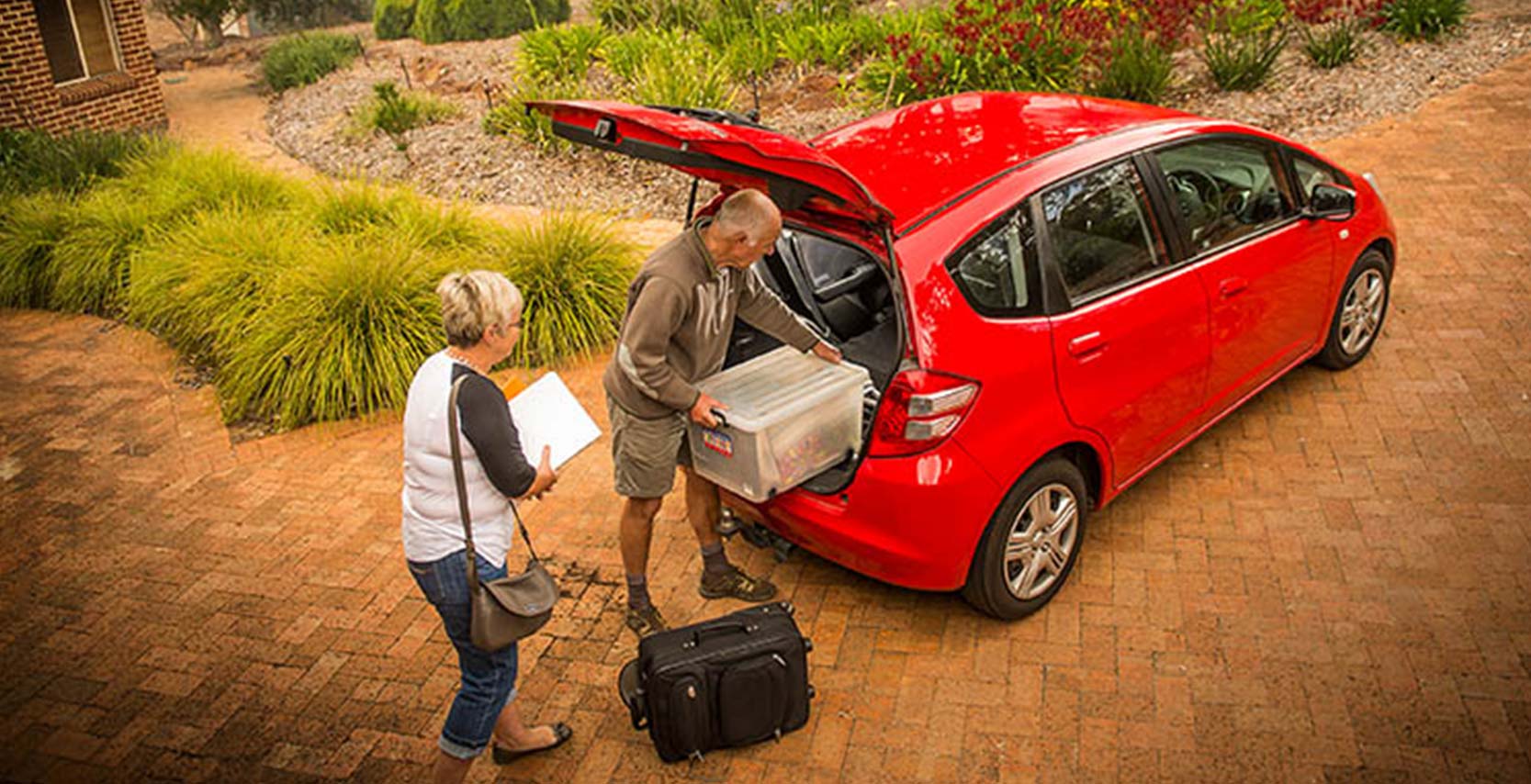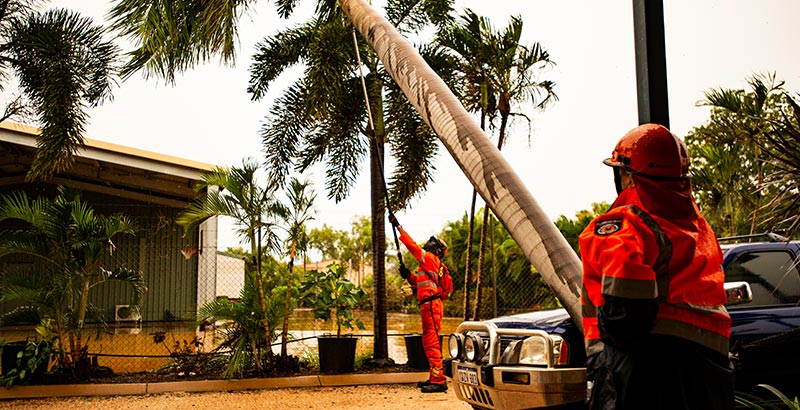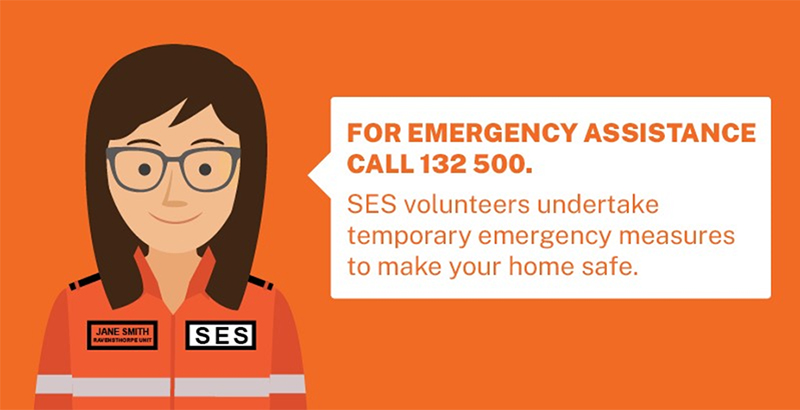Fire or life threatening emergencies: 000
Emergency Information: 13 3337
SES Emergency Assistance: 132 500
The intensity of wind and rain you experience depends on where the cyclone is. You may experience the eye of the cyclone with its most destructive wind and rain. If you live further away, the wind and rain will be less intense.
The noise from the wind and rain can be very loud, with crashing and banging sounds that can occur for many hours.
Seas will be rough with huge swells. If you own a boat, do not go out on the water when a cyclone warning has been issued. Storm surge is also likely which can put coastal structures and homes at risk.


Cyclone activity produces strong onshore winds and flooding rains, increasing the threat of storm surge. A storm surge is a large, quick moving body of water that piles up against the shore. It can damage and destroy your home and outbuildings, wash away access roads and run ships aground. It’s a dangerous, unpredictable and unstoppable force that can kill.
You must evacuate if you are camping, travelling with a caravan or in a house that will not withstand forecast winds, flooding and storm surge.
If you need to evacuate and head to a safer location, leave before an Emergency Warning is issued. Leaving at the last minute is very dangerous. Your planned route may be blocked by fallen trees and fast flowing water.

Did you know? Most cyclone-related deaths are from drowning. Floodwaters can take control of a 4WD in just 30cm of flowing water. For cars, it is only 15cm.
If sheltering at home, fill sinks, buckets, containers and bath with clean water in case mains water supply is affected.
When a Emergency Warning has been issued, you must stay inside. It is extremely dangerous to go outside during the cyclone as flying debris can cause injury.
If you are sheltering at home, look for ways to keep yourself and your family safe. For example, moving to a room without windows, using mattresses and cushions for protection.

DFES will provide regular cyclone warning updates.
Always have your battery-powered radio with you and listen for emergency broadcasts. If you have an internet connected device, stay up to date through Emergency WA, DFES Facebook, or 13 3337.
Important note: A drop in wind may mean you are experiencing the eye of the cyclone. Destructive winds will return very soon. Do not go outside until the warning says it is safe to do so.

Even if you have planned well, life threatening situations can still happen. Your shelter could be damaged, or someone could become ill or injured. For life threatening emergencies call 000.
Emergency responders will try to come to your aid. However, there may be delays due to the dangerous conditions. If you shelter in your home, it is very important that you know the risks and what you may experience.
Once the cyclone has passed you must follow the safety advice in the warning. An Advice or Watch and Act might still be issued, depending on the remaining hazards and risk still present. Care should be taken to avoid dangers caused by damage such as fallen power lines, structural debris and road hazards.
Do not enter your property if it is seriously damaged. It may be unsafe. Call the State Emergency Service on 132 500 for assistance.
